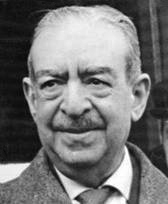Ahmet Emin Yalman facts for kids
Quick facts for kids
Ahmet Emin Yalman
|
|
|---|---|
 |
|
| Born | 14 May 1888 |
| Died | 19 December 1972 (aged 84) Istanbul, Turkey
|
| Resting place | Feriköy Cemetery, Istanbul |
| Nationality | Turkish |
| Alma mater | Istanbul University Columbia University |
| Occupation | Journalist, writer, academic |
| Awards | Golden Pen of Freedom |
Ahmet Emin Yalman (born May 14, 1888 – died December 19, 1972) was a famous Turkish journalist, writer, and university professor. He believed in freedom and was against the spread of Nazism (a very harmful political idea) in Turkey.
Contents
Ahmet Emin Yalman's Early Life and School
Ahmet Emin Yalman was born in 1888 in Thessaloniki. At that time, Thessaloniki was part of the Ottoman Empire. He went to different schools there.
He attended a primary school and then a military middle school. His father, Osman Tefviq Bey, taught calligraphy at the military school. After some problems with his teachers, his father sent him to a German school in Thessaloniki.
In 1903, his family moved to Constantinople (now Istanbul). There, he went to the German school in Beyoğlu. He learned German and English at this school.
After finishing school, Yalman worked as a translator for the Sabah newspaper. He also worked for the Ottoman Government. He tried to study law at Istanbul University, but he did not finish.
From 1911, Yalman studied political science at Columbia University in the United States. He earned a Ph.D. (a high-level degree) in 1914.
Ahmet Emin Yalman's Career in Journalism
After returning to Istanbul, Ahmet Emin Yalman worked with Ziya Gökalp at Istanbul University. He also became a journalist for the newspaper Tanin. For Tanin, he reported on World War I from different battlefields. These were places where the German Empire was fighting.
When he came back to Istanbul, he started his own newspaper called Vakit in October 1917.
Challenges and Exile
In 1919, Yalman was against the government led by Damat Ferid Pasha. Because of this, the Sultan Mehmed VI sent him away from Istanbul for three months. He was sent to Kutahya.
In 1920, he was sent away again. This time, the British forces occupying Istanbul exiled him. They saw him as a supporter of the Committee of Union and Progress, a political group. Yalman was released in 1921.
He then joined the forces of the Ankara government led by Mustafa Kemal Atatürk. Atatürk asked him to report from the battlefields of the Turkish War of Independence.
Founding Vatan and Later Years
In 1923, Ahmet Emin Yalman started another newspaper called Vatan. Later, he became a strong critic of the government led by Mustafa Kemal Atatürk. He especially criticized Prime Minister İsmet İnönü. İnönü wanted to use a special law to restore order during the Sheikh Said rebellion.
Because of his strong opinions, Yalman had to go to court. He was not allowed to work as a journalist until 1936. During this time, he worked in business. He represented different American companies. When he was allowed to write again, he worked for the Tan newspaper.
In 1940, Yalman was able to publish Vatan again. In 1952, a student tried to kill him, but the attack failed. The student was sent to prison.
Towards the end of the time when Adnan Menderes was in power, Yalman was put in prison. He was sentenced to over a year. However, he was released after the military coup of 1960. He passed away on December 19, 1972, in Istanbul.
Ahmet Emin Yalman's Works and Awards
Yalman was the founder and editor of the important Turkish newspaper Vatan for many years. He also helped start two international groups:
- The Liberal International in 1947.
- The International Press Institute in 1950.
He wrote many books. He published three books in English, one in German, and more than ten in Turkish. He also wrote a four-volume autobiography (the story of his own life). Some of his book titles include:
- The Development of Modern Turkey as Measured by Its Press (1914)
- An Experiment in Clean Journalism (1950)
- Turkey In My Time (1956)
- Turkey in the World War (1930)
Ahmet Emin Yalman received many awards for his work. These include:
- The Golden Pen of Freedom in 1961 from the World Association of Newspapers and News Publishers.
- The Gold Medal of the British Institute of Journalists.
 | John T. Biggers |
 | Thomas Blackshear |
 | Mark Bradford |
 | Beverly Buchanan |

